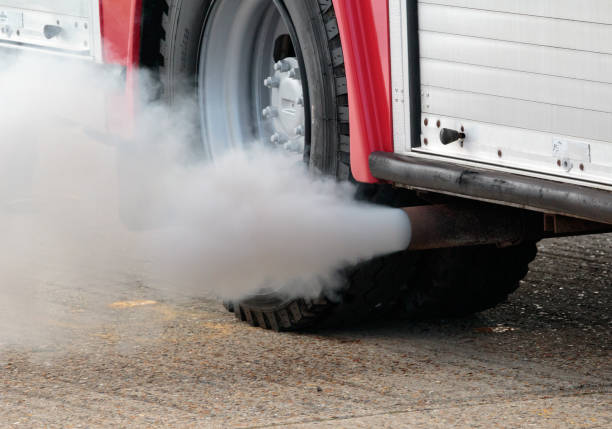For many vehicle owners, the term “smog check” may be familiar but not fully understood. This routine test plays a crucial role in maintaining environmental standards, ensuring vehicle safety, and complying with state laws. Understanding what a smog check really means can help vehicle owners appreciate its importance and prepare for the process with confidence. This article explores the essentials of smog checks and what vehicle owners need to know.
The Purpose of a Smog Check
A smog check is an emissions test designed to measure the pollutants that a vehicle emits through its exhaust system. It helps identify cars that produce excessive pollution, which contributes to air quality degradation and environmental harm. Many states, especially those with higher population densities and pollution levels like California, require smog checks periodically to keep vehicles environmentally compliant.
To find certified and reliable smog check stations, vehicle owners can utilize trusted resources such as the Smog Check Network (available at www.smogcheck.net) and Vehicle Care Network (available at www.vehiclecarenetwork.com). These networks ensure that the stations used for testing meet state regulations and provide accurate results.
Why Are Smog Checks Important for Vehicle Owners?
Smog checks serve multiple purposes for vehicle owners beyond just legal compliance. Primarily, they help:
- Protect the Environment: Vehicles that fail smog checks often release harmful gases like carbon monoxide, nitrogen oxides, and hydrocarbons. By ensuring vehicles meet emissions standards, smog checks reduce air pollution and its negative impact on health and ecosystems.
- Maintain Vehicle Performance: A smog check can reveal underlying mechanical issues affecting your car’s engine or emission systems. Identifying these problems early can prevent costly repairs and improve fuel efficiency.
- Comply with the Law: In many states, passing a smog check is a mandatory requirement for vehicle registration renewal or when transferring ownership. Failure to comply may result in fines or registration delays.
What Happens During a Smog Check?
During a smog check, a certified technician performs several tests on your vehicle. These typically include:
- Visual Inspection: Checking emission control components such as the catalytic converter, oxygen sensors, and gas cap for damage or tampering.
- Emissions Test: Measuring the levels of pollutants released from your vehicle’s exhaust.
- On-Board Diagnostic (OBD) Scan: Connecting to your car’s computer system to detect any emission-related faults or malfunctions.
The results indicate whether your vehicle passes or fails according to the state’s emission standards.
Who Needs to Get a Smog Check?
Not every vehicle owner is required to get a smog check. Requirements vary by state, vehicle age, and type. Typically, smog checks are required for:
- Gasoline-powered vehicles that are over a certain age, often six years or older.
- Diesel-powered vehicles within certain weight limits.
- Vehicles being sold or registered in specific areas known for stricter emissions controls.
Electric vehicles and some older model vehicles may be exempt from smog testing.
Preparing Your Vehicle for a Smog Check
Vehicle owners can take several steps to improve their chances of passing the smog test on the first try:
- Keep up with regular maintenance: Routine oil changes, air filter replacements, and engine tune-ups ensure the emission system is functioning well.
- Address warning lights: If your “Check Engine” light is on, have your vehicle diagnosed and repaired before the smog test.
- Drive before the test: Driving your vehicle for at least 15 minutes beforehand warms up the engine and helps produce more accurate emissions readings.
What If Your Vehicle Fails the Smog Check?
Failing a smog check can be frustrating, but it offers valuable insight into issues that need attention. If your vehicle fails:
- Review the failure report to understand the causes.
- Take your vehicle to a qualified mechanic to perform the necessary repairs.
- Retest the vehicle once repairs are completed.
Many states offer repair assistance programs to help eligible vehicle owners with the costs associated with emissions-related repairs.
Choosing the Right Smog Check Station
Selecting a certified and reliable smog check station is vital to ensure accurate testing and avoid retesting hassles. Trusted directories like the Smog Check Network and Vehicle Care Network list authorized providers who comply with state regulations and maintain up-to-date equipment.
Choosing the right station also means getting transparent pricing, efficient service, and helpful guidance throughout the testing process.
Conclusion
For vehicle owners, a smog check means more than just a regulatory hurdle—it is a critical step in protecting the environment, ensuring vehicle efficiency, and staying legally compliant. Understanding what smog checks entail and how to prepare for them can make the process smoother and less stressful.
By utilizing trusted resources such as the Smog Check Network and Vehicle Care Network, vehicle owners can find certified smog check stations that offer reliable testing services. Ultimately, staying informed and proactive about smog checks benefits both your vehicle’s health and the broader community’s air quality.




